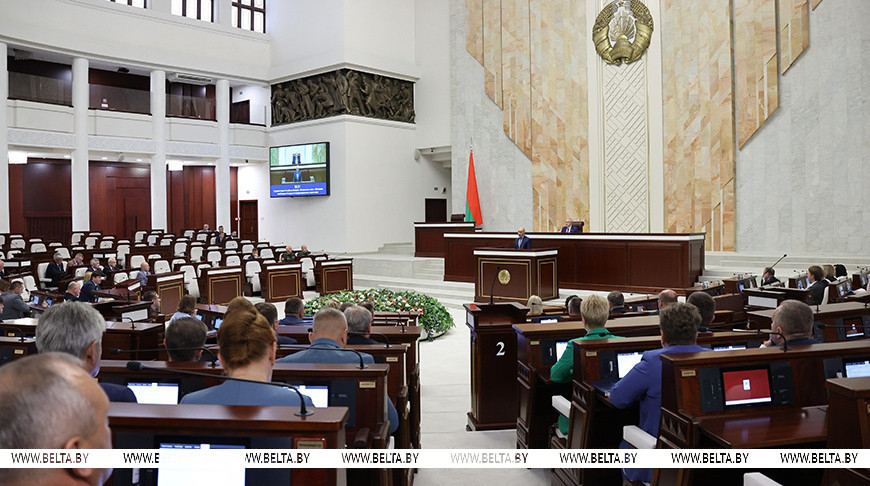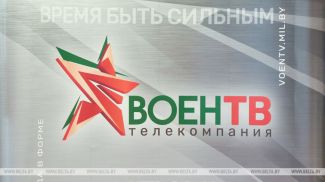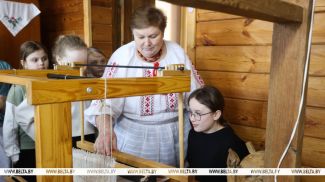
MINSK, 30 May (BelTA) – The House of Representatives of the National Assembly of Belarus has given two readings to the bill on an amnesty in connection with the 80th anniversary of Belarus’ liberation from the Nazi invaders, BelTA has learned.
The bill was brought into the House of Representatives of the National Assembly on 23 May 2024. The document was introduced by Deputy Internal Affairs Minister, Chief of Criminal Police Gennady Kazakevich. In his words, the bill has been developed upon the Belarus president’s instruction given on 11 January 2024 at a government conference on ways to improve criminal responsibility legislation. Unlike previous amnesty bills this one will reintegrate the amnestied individuals into the country’s economy as much as possible. Those, who are sentenced to community service, correctional work and other measures of criminal liability, will be granted amnesty only if they have worked, have studied, or have been engaged in other activities, according to which they are considered involved in the economy, for at least three months as of the day their amnesty applications are reviewed. The bill also stipulates various legal consequences for granting amnesty to people sentenced to punishments in the form of restriction of liberty and deprivation of liberty.
According to preliminary data, the bill offers amnesty to 7,850 convicts. Punishments and other kinds of criminal liability will be dropped for as many as 2,090 individuals. The amnesty will free 800 individuals from conditional sentence for the unserved portion of criminal sentence, 40 people from punishments in the form of arrest. Deprivation of freedom will be replaced with restriction of freedom for 260 people without sending the individuals to an open-type correctional institution. The length of punishment will be reduced by one year for 4,550 people. The main criteria for granting the amnesty include full indemnity of the damage inflicted by the crime and good behavior during the service of punishment.
In comparison with previous amnesties the latest bill contains the following novelties. In particular, it suggests reducing the duration of punishment by one year for mothers of many, who are convicted of murder or severe bodily injury resulting in death without aggravating circumstances (part 1 of article 139 and part 3 of article 147 of the Criminal Code), for women and lonely men, who have underage kids and have committed crimes involving the illegal circulation of narcotic substances, psychotropic substances, their precursors, and analogs. The bill suggests granting amnesty to persons, who have committed crimes under part 1 of article 349 (unauthorized access to computer information), part 1 and part 2 of article 350 (destruction, blocking or modification of computer information) of the Criminal Code, and to those, who have been sentenced to community service and correctional work. As for those sentenced to punishment in the form of community service, correctional labor or other measures of criminal liability, the amnesty will apply only to persons, who have been working, studying or engaged in other activities equal to employment in accordance with the legislation on population employment for at least three months prior to the amnesty.
There are plans to also extend the effect of articles 1, 3-8 of the bill onto persons, who have committed crimes under part 1 of article 171 (organization and/or use of prostitution business or creation of conditions for prostitution), part 2 of article 171-1 (involvement in prostitution or coercion to continue prostitution) of the Criminal Code, as well as onto persons, who have committed a crime under part 1 of article 455 (abuse of power, failure to use authority or abuse of power) of the Criminal Code, with the exception of persons, who have committed the crime out of selfish interest or other personal interest. Deprivation of freedom will be replaced with restriction of freedom without sending the individuals to an open-type correctional institution in line with article 5 and 7 of the bill. Those convicted of crimes that do not pose a great danger to society and are less serious will be granted conditional release for the unserved portion of criminal sentence and those convicted of such crimes and sentenced to deprivation of freedom will have the unserved portion of criminal sentence replaced with a more lenient punishment in the form of restriction of freedom without sending the individuals to an open-type correctional institution.
Just like the previous amnesty on the occasion of People’s Unity Day this one reduces the term of punishment by one year for persons, who have committed crimes related to the illegal circulation of narcotic substances, psychotropic substances, their precursors and analogs under the age of 18, and for persons, who have committed corruption crimes. Amnesty will not be granted to persons involved in extremist and terrorist activities. Decisions on granting the amnesty will be made case by case.
The bill stipulates the procedure for implementing the amnesty, including a list of government agencies responsible for its implementation, measures to ensure its implementation, assistance to amnestied persons with domestic and employment arrangements, production and replacement of personal identity documents, placement of minors under the control of their parents, guardianship and custody agencies, placement in children's homes, villages and towns, social and pedagogical centers if necessary, placement of disabled persons of group 1 and 2 and persons of retirement age where necessary into special boarding homes for the elderly and disabled, provision of medical care to people, who are released from correctional institutions, detention homes and pretrial detention centers because of their illness, organization of domiciliary regular medical checkups.













